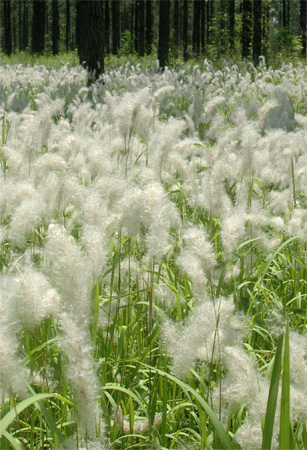It’s National Invasive Species Awareness Week
March 4, 2013
 Escambia County Extension and the University of Florida Institute of Food and Agricultural Science (UF/IFAS) are drawing attention to invasive species during National Invasive Species Awareness Week, March 2 to March 8. Invasive species are non-native or exotic species that do not naturally occur in an area and cause economic, environmental harm or harm to human health.
Escambia County Extension and the University of Florida Institute of Food and Agricultural Science (UF/IFAS) are drawing attention to invasive species during National Invasive Species Awareness Week, March 2 to March 8. Invasive species are non-native or exotic species that do not naturally occur in an area and cause economic, environmental harm or harm to human health.
Invasive exotic plants and animals cause many challenges for natural resource managers of timber, wildlife and recreational uses. Invasive species can displace native plants and wildlife affecting fire regimes, water flow and biodiversity. Private and public lands are in need of frequent treatment to eradicate these invasive species. Invasive species do not know boundaries and as a result public and private lands are affected as well as natural and man-made water bodies and associated watersheds.
For more information on prevention and containment of invasive species contact Escambia County Extension at (850) 475-5230 or click here.
Pictured: Cogongrass, considered one of the 10 worst weeks in the world, occurs throughout Florida, displacing native species. Courtesy photo for NorthEscambia.com, click to enlarge.
Comments
2 Responses to “It’s National Invasive Species Awareness Week”



I have observed some type of snakes in water around boca grande fish pier at night
i have observed snakes in saltwater at boca grande fish pier at night i know sea snakes are not native to this area curiose about what they are they are reproducing
i
Chinese Privet
Chinese Tallow (aka Popcorn tree)
Cogon grass
Mimosa
^definately the worst ones in our area, and in that exact order.
I’m afraid Paulownia (Empress tree) will be bad in coming years, since I see so many people planting them.